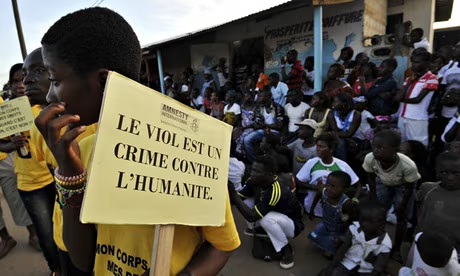Madam Chairperson and honourable Commissioners,
In 2004, IHRDA filed a communication on behalf of Mr Esmaila Connateh and 13 other Gambians deported from Angola in March, April and May of 2004, together with an estimated 126,247 other foreigners. They were expelled under a government programme called Operaçao Brilhante, whose aim was to rid the mining areas of foreigners. The complainants alleged that they were legally resident in Angola and possessed the requisite work permits and authorisations. In the process of expelling them, they were detained under grossly inhuman conditions. They were also not afforded access to due process to challenge the legality of their arrest, detention and deportation.
The Commission came to a decision on the communication in May 2008. The Commission found Angola in violation of several articles in the African Charter. The Commission consequently recommended that the Republic of Angola review its immigration policies and legislation, policies and structures for detention, and afford procedural safeguards to persons detained. It also recommended that Angola allow the Commission, relevant international organisations, ICRC, NGOs and concerned consulates to access detention centres, including places where non-nationals are held. The Commission finally recommended that Angola establish a Commission of Inquiry to investigate circumstances surrounding the expulsion of the victims and duly compensate them.
Since May 2008 when the decision was issued by the Commission, Angola has wilfully refused to implement the decision. IHRDA has visited the victims in Basse, Gambissara and Banjul in the Gambia to document their living conditions. All the victims are not gainfully employed, living from hand to mouth. Some still bear the scars from being beaten by Angolan security officials and complain of occasional illness arising from the inhuman treatment they were subjected to.
In considering communications, the African Commission has reiterated many times that remedies have to be effective if victims of human rights violations are to receive justice. Since the victims were expelled in 2002, they are yet to receive any justice. The Commission itself took over 4 years to complete consideration of the communication. Though the victims welcomed the decision, they expressed serious concern over the delay. They were even more concerned about the implementation of the decision, especially since Angola did not respond to the communication. Without the intervention of the African Commission, they have no hope of ever receiving compensation for their losses and the wrongs they suffered in Angola.
The IHRDA has made two statements about the non-implementation of this decision to the honourable Commission at its 45th and 57th Ordinary Sessions in May 2009 and November 2015 respectively, both in Banjul.
Rule 118 (1) of this Commission’s Rules of Procedure provides for the possibility of a referral of a communication to the African Court on Human and Peoples’ Rights, if the Commission has made a decision on the communication and considers that the State has not complied with the decision, or is unwilling to comply with the decision. However, for the Commission to be able to make such referral, the State concerned must be a party to the Protocol creating the Court.
In this case, Angola has not ratified the Court’s Protocol and as such this case cannot be referred to the Court. This leaves the victims hopeless with nowhere else to turn so as to secure the fruits of the decision.
IHRDA urges the honourable Commission to take follow-up measures with a view to ensuring that Angola respect and comply with the decision of the Commission.
IHRDA also urges the honourable Commission to guide on what possible steps can be taken to ensure that Angola respect and comply with the decision of the Commission.
Thank you.




